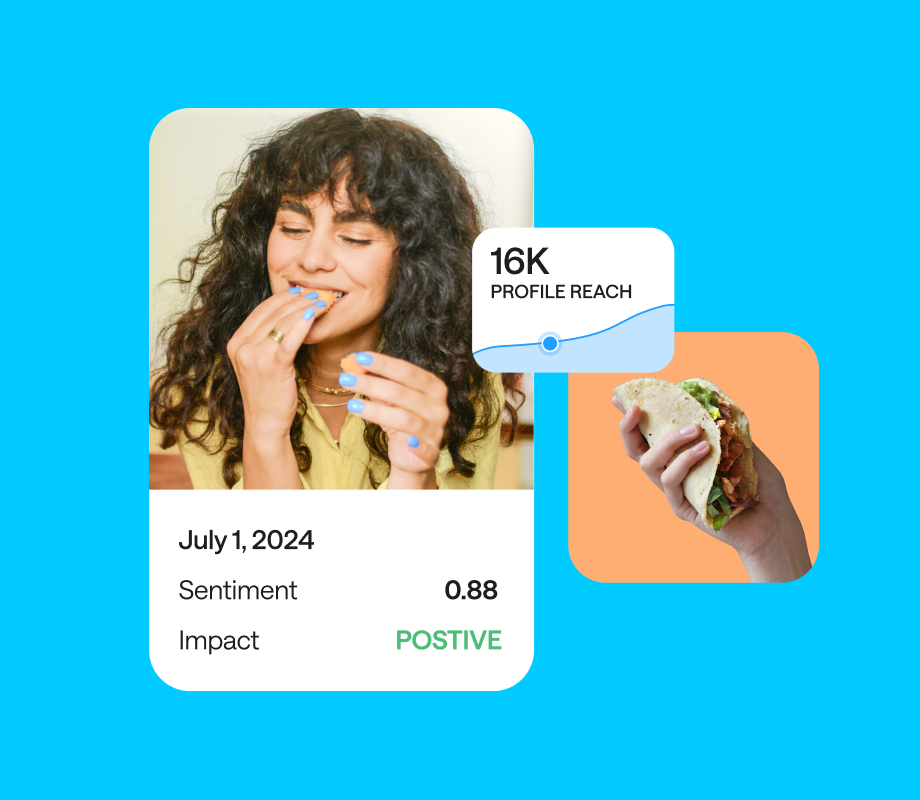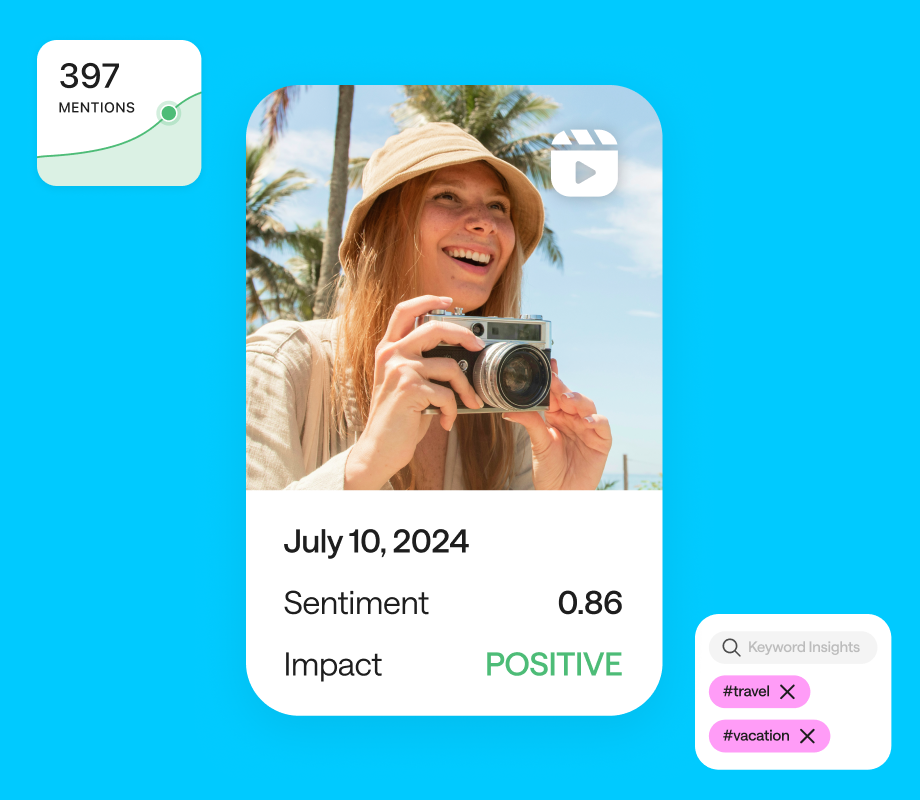Reputation is more than just Taylor Swift’s iconic sixth album. Your brand’s reputation is one of its greatest assets.
A strong rep attracts loyal customers, fosters trust, and sets you apart. Every interaction, review, and social post contributes to how your brand is perceived, making reputation management essential to your long-term success.
In this post, we’ll explore the key elements of reputation management and how influencer marketing and social listening can help your brand reach new heights.
Table of Contents
Join over 1 million marketers to get social news, trends, and tips right to your inbox!
Email AddressWhat Is Reputation Management?
Reputation management is the practice of shaping and influencing how stakeholders and the public perceive your organization and its brands.
According to Gartner, reputation management involves monitoring public conversations, managing threats to reputation, and proactively engaging in efforts to strengthen brand image. It integrates multiple business areas, including communications, marketing, legal, and customer service, all of which play a role in maintaining a positive image.
A key part of this strategy is how businesses handle online reviews and feedback. Up to 94% of consumers say a negative review or social media comment has convinced them to avoid a company, highlighting the importance of actively engaging with customers to address concerns and protect your brand’s reputation.
Building a strong reputation is an ongoing process. Consistent, genuine engagement fosters credibility and trust, helping your brand maintain positive relationships with its audience.
Why Reputation Management Matters
Simply put: A strong brand reputation drives better results.
When customers trust your business, they are more likely to engage with your content, make purchases, and advocate for your brand. Without that trust, potential customers will stop engaging and even avoid your brand.
Managing your reputation helps build:
Trust and Loyalty: A good reputation encourages lasting customer relationships built on trust.
Attracting New Customers: Positive reviews, influencer partnerships, and customer stories give new audiences a reason to trust you.
Differentiation: In competitive markets, a strong reputation sets you apart, making you the clear choice for customers.
According to Edelman, 59% of global consumers - including 60% of adult Gen Z and 64% of millennials - agree that even if a good reputation gets them to try a product, they will stop buying if they can’t trust the company.
Strengthen Your Reputation with Authentic Influencer Endorsements
Here's a hot tip. There is one effective and underutilized strategy that you can use to strengthen your reputation: Working with influencers to amplify your message by lending their credibility to your brand.
Authentic endorsements from influencers and creators increase trust and visibility for your brand - what’s not to love?
If a fashion brand partners with an influencer who matches their style and values and that influencer shares their experience using the product, their followers see this as an authentic recommendation, boosting the brand’s credibility.
Here’s an example from creator @lilrotini collaborating with Urban Outfitters.
This is a smart tactic. 49% of consumers trust online reviews as much as personal recommendations from friends and family; this could be even stronger from an influencer they already trust.
Of course, it doesn’t make sense to work with any and every influencer; to be seen as authentic, you’ll want to partner with influencers who align with your brand, values and campaign direction.
Partnering with the team at Later Influence can help you target the perfect creators for your brand campaigns, with 10+ million creators on our influencer database to choose from.
Book a phone call with us today to learn more.
Managing Online Reviews to Build Your Reputation
Online reviews are one of the most powerful forms of social proof available to businesses. Effective online review management can have a significant impact on your brand's reputation.
Positive reviews boost credibility and trust, while negative reviews offer an opportunity to demonstrate excellent customer service by addressing concerns transparently.
Tips for Managing Online Reviews:
Respond to Every Review: Whether positive or negative, responding shows that you value your customers’ feedback. For positive reviews, thank your customers and highlight their experience. For negative reviews, acknowledge the issue and offer a solution to show your commitment to resolving problems.
Encourage Satisfied Customers to Leave Reviews: Often, happy customers won’t leave a review unless prompted. Sending a follow-up email or including a CTA in your social media posts encouraging reviews can help build up positive feedback.
Address Negative Reviews Quickly: Negative feedback is inevitable, but handling it promptly and professionally can turn a potential PR crisis into a positive customer experience. Negative reviews can spawn if not addressed quickly enough, as other people can jump on the back of one negative review.
By staying on top of your online reviews, you’ll make sure that your brand remains engaged, responsive, and connected to the needs of your customers, which should ultimately strengthen your reputation.
Creating a Reputation Management Strategy
Building a solid reputation management strategy helps you protect your brand and continuously grow your influence. Here’s how to approach it:
#1: Monitor Brand Mentions
Track what people are saying about your brand online. Social listening tools help you stay informed about feedback and conversations happening across platforms.
#2: Engage with Your Audience
Respond to reviews and comments promptly. Showing appreciation for positive feedback and addressing concerns quickly helps build trust and fosters strong relationships.
#3: Work With Influencers for Social Proof
Partner with influencers who align with your brand values to create authentic endorsements. Influencers’ recommendations are seen as trusted opinions, which can enhance your brand’s credibility.
#4: Encourage User-Generated Content
Customers love sharing their experiences, so encourage them to post reviews, testimonials, and social media stories that showcase your brand in action. This social proof strengthens your reputation.
#5: Be Prepared for Crisis Management
Have a plan in place to address any potential challenges or negative feedback. Responding with transparency and care can protect and even enhance your reputation during challenging times.
Ready to Strengthen Your Brand’s Reputation?
Your brand’s reputation is one of your most valuable assets. With Later Influence, you can grow it through influencer marketing, and with Later Social’s social listening capabilities, you can monitor and shape brand sentiment.
Together, these tools help you manage and elevate your reputation to build lasting trust with your customers.
Book a free demo with Later today to discover how our tools can help you manage and grow your brand’s reputation.




